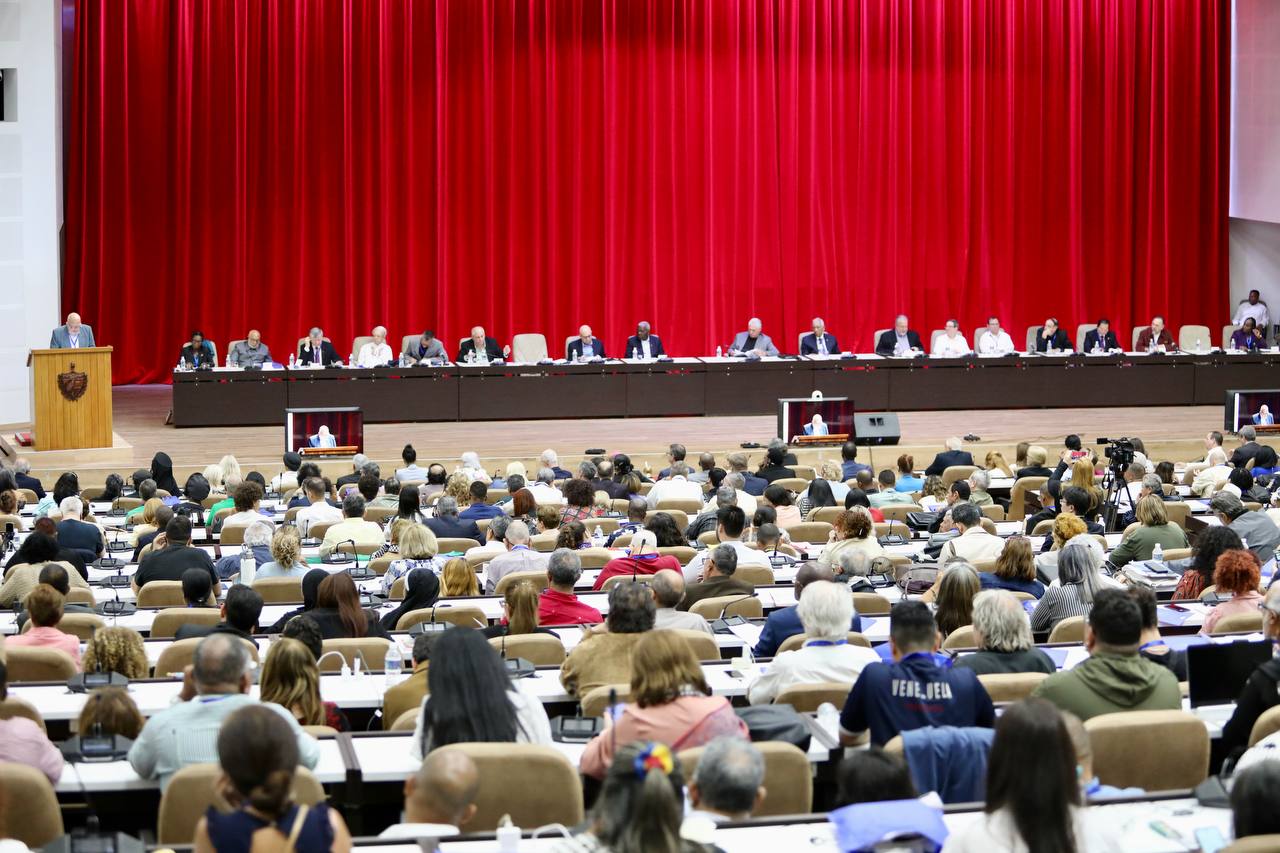Havana, January 28, 2025 – With 623 delegates from 98 countries, the 6th International Conference for World Balance was inaugurated this Tuesday in Havana, Cuba. The event was convened by the Presidency of the island, the Ministry of Foreign Affairs, and the José Martí Project for World Solidarity.
Professor Héctor Hernández Pardo, coordinator of the José Martí Project for World Solidarity, opened the session by welcoming the presence of Cuba’s President Miguel Díaz-Canel, Foreign Minister Bruno Rodríguez, and distinguished guests such as the Executive Secretary of the Bolivarian Alliance for the Peoples of Our America–Peoples’ Trade Treaty (ALBA-TCP), Jorge Arreaza, along with intellectuals and scientists.
Hernández Pardo emphasized that the most pressing issue today is the fight for life on the planet, underscoring that this forum serves as a crucial space for fostering ideas. “We do not hold these gatherings to gain credit for Cuba, but to achieve the balance of the world, as there is an ongoing attempt to remove multilateralism and crush the right of peoples to self-determination,” he stressed.
Monsignor Antoine Camilleri, Apostolic Nuncio to Cuba, read a message from Pope Francis, in which the pontiff urged participants to uphold hope as a fundamental value in this diverse forum.
“We must see the best in the world, abandon the logic of violence, and commit to dialogue and diplomacy (…) Migrants and displaced people, including those deprived of their freedom, must be at the center of your considerations so that no one is excluded and their dignity is respected.”
Meanwhile, Dimitri Georgievich, Vice President of International Affairs of the Russian Duma, highlighted that Cuba’s national hero, José Martí, serves as a guiding figure in the defense of sovereignty.
Speaking on behalf of Venezuela, Minister of Culture Ernesto Villegas noted that xenophobia, historically directed at Afro-descendants, has now expanded in the United States to target migrants and people of Arab origin.
“All human beings are fundamentally equal, and if we truly seek peace, we must eradicate all supremacist ideologies (…) It seems that human intelligence has gone on vacation. Unelected figures with enormous fortunes make decisions that impact all of humanity. To achieve peace, humanity must free itself from the dictatorship of algorithms. Against supremacism, the only vaccine is pride in our diverse identities.”
Decima Williams, President of the Senate of Grenada, stated: “We are here to discuss diplomacy, peace, justice, and sovereignty, as well as other fundamental rights of the peoples (…) We must also talk about science while the world burns due to climate change, embargos, sanctions, and blockades.”
Williams evoked the legacy of Simón Bolívar and the struggle for independence, the diplomatic battles led by Commander Fidel Castro, the Haitian leaders, and feminist movements. “We are envisioning the resurgence of a new international economic order,” she added.
The conference, set to run until January 31, also welcomed the President of Cuba’s National Assembly of People’s Power, Esteban Lazo; the Secretary of Organization of the Communist Party of Cuba, Roberto Morales; Prime Minister Manuel Marrero; and representatives of solidarity organizations with Cuba.
Following the inauguration, January 28 featured the keynote lecture Justice as the Path to Peace and Balance in the World, by Frei Betto, a Dominican friar, theologian, and renowned Brazilian intellectual. Additionally, the UNESCO International José Martí Prize was awarded to the Pacific Unified Midwives Association of Colombia (Asoparupa in Spanish), and an exhibition of children’s drawings from various countries was inaugurated.
